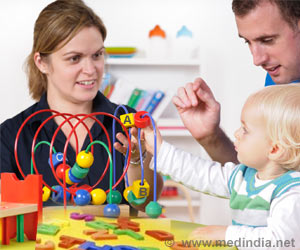
‘Children whose fathers tend to engage in more physical play such as tickling and chasing have increased ability to learn to control emotions.’
Tweet it Now
The study pulled together fragmentary evidence from the past 40 years to understand more about how fathers play with their children when they are very young (aged 0 to 3). The researchers wanted to find out whether father-child play differs from the way children play with their mothers and its impact on children's development. The findings suggest that fathers engage in more physical play even with the youngest children, opting for activities such as tickling, chasing, and piggy-back rides.
This seems to help children learn to control their feelings. It may also make them better at regulating their own behavior later on, as they enter settings where those skills are important, especially schools.
"It's important not to overstate the impact of father-child play as there are limits to what the research can tell us, but it does seem that children who get a reasonable amount of playtime with their father benefit as a group," said study researcher Paul Ramchandani from the University of Cambridge in the UK.
The Cambridge review used data from 78 studies undertaken between 1977 and 2017, most of them in Europe or North America.
Advertisement
With babies, that may simply mean picking them up or helping them to gently raise their limbs and exert their strength; with toddlers, fathers typically opt for boisterous, rough-and-tumble play, like chasing games.
Advertisement
They also appeared to be better at controlling their aggression, and less prone to lash out at other children during disagreements at school. The reason for this may be that the physical play fathers prefer particularly well-suited for developing these skills.
The study also found some evidence that father-child play gradually increases through early childhood, then decreases during 'middle childhood' (ages 6 to 12).
Source-IANS









